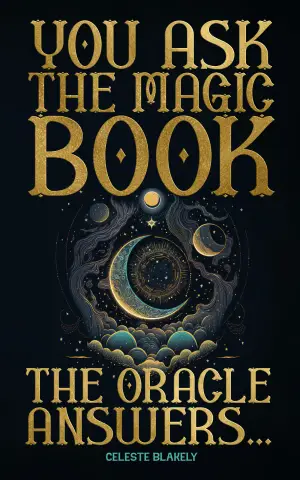A Journey Through The Wrong End of the Telescope: Rabih Alameddine’s Remarkable Tale
When I first stumbled upon The Wrong End of the Telescope by Rabih Alameddine, it was less of a choice and more of a serendipitous encounter. The title piqued my curiosity, and upon learning that it won the 2022 PEN/Faulkner Award for Fiction, I felt drawn to explore its depths. This novel explores themes of alienation, resilience, and the tragic consequences of socio-political turmoil through the eyes of an unforgettable protagonist.
Alameddine has a unique talent for threading the complex narratives of human experiences seamlessly. Enter Mina Simpson, a trans woman who embarks on a journey from Chicago to Lesbos to aid refugees in the midst of a crisis that echoes the pain of her own existence. Mina is navigating a world that often feels hostile, yet she embodies tenderness and strength, supported by her equally remarkable partner, Francine. Their love story, which stretches back decades, infuses a sweetness that contrasts starkly with the overwhelming backdrop of suffering in the novel.
What struck me most was the intimate relatability of Mina’s voice. As she confronts the realities of being a trans woman—both in Lebanon and now in a crisis that has uprooted countless lives—her struggles become palpably personal. Alameddine’s writing is rich with evocative imagery, weaving intricate tapestries of emotional depth. For instance, his poignant observations about the Mediterranean—"the clouds were such that both the asphalt and the water had the same color"—transport the reader into Mina’s complex psyche, simultaneously embroiled in the beauty and chaos around her.
The narrative style adds another layer of intrigue. Alameddine employs a second-person perspective that pulls you in, making you feel as though you’re participating in Mina’s journey rather than merely observing it. This choice could easily fall flat in less skilled hands, but here, it creates a warm inclusivity that invites the reader to grapple with the poignant questions surrounding the refugee crisis. I couldn’t help but reflect on my privilege as I connected with the characters’ struggles.
Humor also dances throughout the novel, balancing its weighty themes with levity. A particularly witty moment comes from Francine’s suggestion to the narrator about writing an "American couple in suburbia" to help Syrian refugees. It’s an absurd yet contemplative take on how narratives shape our understanding of empathy, and it left me chuckling amid my reflections.
While The Wrong End of the Telescope is deeply rooted in specific socio-political realities, its themes transcend borders. Readers who appreciate nuanced perspectives on identity, love, and resilience will find themselves enveloped in its brilliant narrative. This book is a must-read for anyone eager to explore the echoing scars of humanity through the lens of a compelling, beautifully flawed character.
As I closed the book, I found myself in a reflective space—reminded of the intricate tapestry of our collective experiences. If you’re searching for a read that is both profound and beautifully crafted, The Wrong End of the Telescope deserves a prominent place on your shelf. It’s a masterpiece that celebrates, critiques, and finally, invites us to be part of a larger, necessary conversation.
[ad_2]
Discover more about The Wrong End of the Telescope on GoodReads >>






